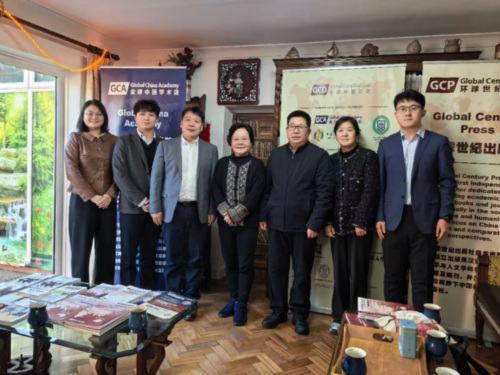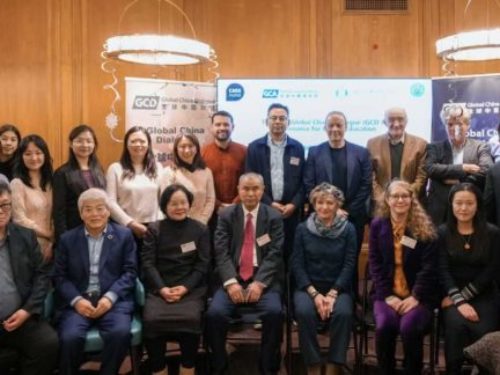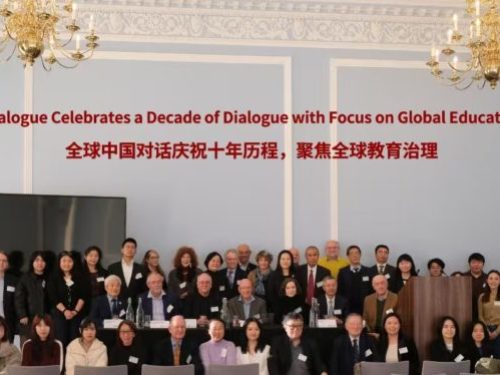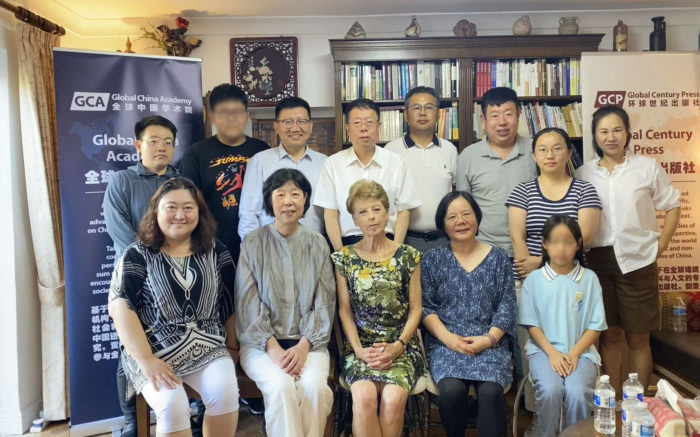
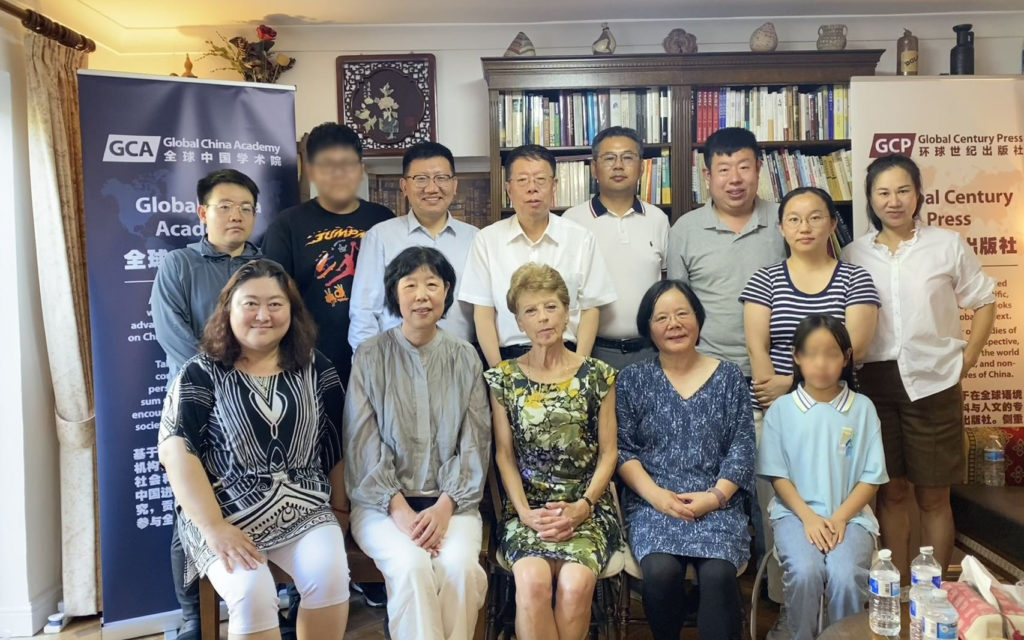
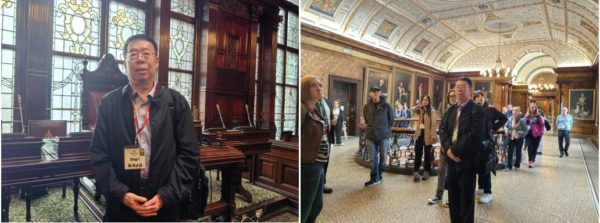
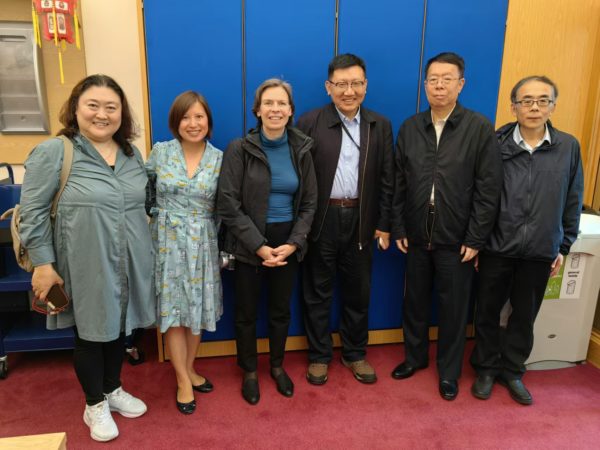
Around 7 pm. on August 8, I visited the hotel where Professor Zhu and his family were staying in Willesden Green to welcome them. Thanks to Professor Zhu’s thoughtfulness, the postcode is NW2, just a 20-minute drive from the GCA Fellows’ Home (NW7). In a city as vast as London, you could almost call us neighbours! Inspired by the traditional Chinese intellectual ideal of ‘reading ten thousand books and traveling ten thousand miles,’ I added two more phrases: ‘dining on international cuisine and making friends from all corners of the world.’ I chose a nearby Turkish restaurant, Lezziz Charcoal Grill, to host them. The restaurant has a simple yet warm decor and offers authentic Turkish kebabs and a variety of Mediterranean dishes. The top left photo shows our ‘big family photo’ (from left to right): Professor Zhu’s son, daughter-in-law, wife, granddaughter, Professor Zhu himself, and me. After enjoying a rich Mediterranean salad, the barbecue feast that followed was about twice the size of what’s shown in the bottom left photo, and the desserts and tea that came afterward were also quite special.
During the meal, we discussed the differences between Chinese and Turkish cuisine, from their forms to their content, and appreciated their attitude of ‘admiring the beauty of others’ and ‘harmony in diversity’ (Fei Xiaotong’s term). Professor Zhu mentioned that restaurants in the UK are livelier than those in China. However, on the way back after dinner, I noticed that quite a few restaurants were rather quiet, which suggests that my choice was not bad, and everyone seemed quite satisfied. I believe that time abroad is precious, and aside from clothing, the experiences of food, accommodation, and travel should all differ from those in our home country.

From August 9 to 10, accompanied by friends and the Academy’s Operations Manager, David Liu, Professor Zhu and his family visited various attractions in London and the surrounding areas.
On the afternoon of the 10th, Professor Zhu and his family came to GCA Fellows’ Home, where they received a warm welcome. The following photos, from left to right and top to bottom, show: me giving a brief introduction to the day’s activities; Professor Zhu presenting a gift to the Academy. He explained that it is a ‘Lotus and Surplus’ New Year painting from Yangliuqing, Tianjin [Note 2], and he wished it would bring good fortune to the Global China Academy. Following this, Professor ZHAO Kejin presented small gifts to both me and Ingrid Cranfield, the former chair of the Academy’s Board of Trustees and the president of Global Century Press.
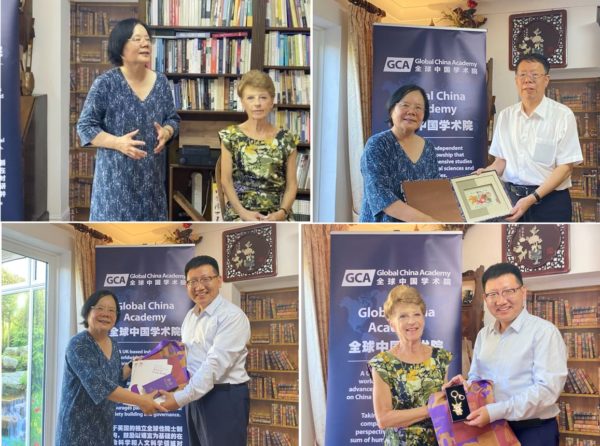
The following is an expanded ‘big family photo,’ which includes three generations of Professor Zhu’s family (five members) and a friend, Professor Zhao’s family of three, and four staff members from the Academy. In addition to Ingrid and me, the photo also includes Operations Manager David Liu (fourth from the right in the back row) and Project Manager Li Yu (first on the right in the back row). I appreciate both of them for driving and accompanying the two families on visits to Oxford and other places respectively.
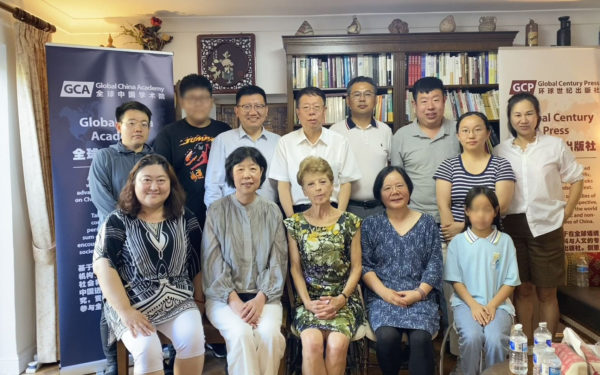
Next is free discussion time (see photos below).

The dinner was a Western-style meal, held in two separate dining rooms: 10 people in the main dining room, and Professor Zhu’s son and his family of three in the garden dining room (as shown in the top left and right of the photos below). It was only afterward that we realized the three courses represented a combination of Italian, French, and British flavors.
- The starter consisted of two parts: one part was a Mediterranean-style seasoned avocado, where the avocado was halved and pitted, then drizzled with balsamic vinegar and olive oil, and sprinkled with black pepper. This dish highlighted the creamy texture of the avocado and its subtle nutty flavour, while the tanginess of the balsamic vinegar and the fruitiness of the olive oil added layers of complexity. The other part of the starter was a beetroot salad with basil and cashews, made with beets handpicked from a nearby farm, boiled, and then mixed with fresh basil leaves and cashews, all tossed in olive oil to create a refreshing salad with a hint of nutty flavour.
- The main course: Since Professor Zhu mentioned he wanted to have grilled fish, we prepared gratinéed salmon with samphire, buttered potatoes, and purple sprouting broccoli. This dish incorporated many classic elements of French cuisine and can thus be classified as a French-inspired dish.
- Dessert: Apple and blackberry pie with cream, all homemade by Ingrid. This is a classic British dessert, combining the sweetness of apples with the slight tartness of blackberries. The pie had a crispy crust and a juicy filling, complemented by smooth, rich homemade white cream. The white of the cream contrasted beautifully with the golden pie crust and the deep red-purple of the fruit filling, enhancing the overall dining experience. The combination of the creamy milk flavour and the fruity aroma of the pie created a striking taste contrast, offering a very comforting culinary experience. [Note 3]
Most importantly, every apple and blackberry used to make these two pies was handpicked by Ingrid herself. We hope that our Fellows and their families can truly feel at home at the GCA Fellows’ Home and take away fond memories of familial warmth.
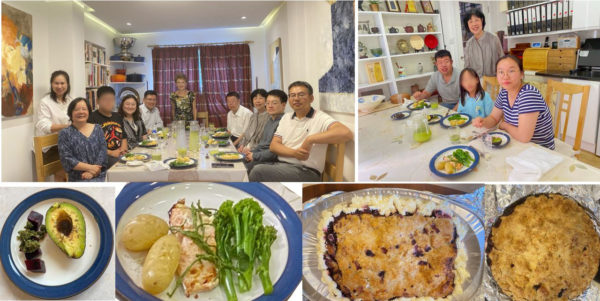
After dinner, having coffee and tea—a dining habit that combines elements of health, tradition, culture, and social interaction—added much enjoyment and benefit to the evening. The following photos show scenes of everyone chatting and drinking from the dining room to the garden, with everyone leaving fully satisfied.
The photo on the bottom right was taken the next morning when I went to Professor Zhu’s residence to bid farewell to his family. When asked if he felt homesick after coming to the UK, he replied, ‘My whole family is here, and we’ve enjoyed the home-like hospitality at the Fellows’ Home, so of course, I’ll miss this home!’ As I watched the minibus take Professor Zhu and his family to the airport, I felt a deep sense of admiration for the seamless coordination among our colleagues and team during this first-time reception of a Fellow and his family at our Fellows’ Home.


- In 2018, during the preparations for the Fifth Global China Dialogue: Global Governance for Justice, we invited Professor Zhu Guanglei, Vice President of Nankai University, as the keynote speaker from China. Since he was initially introduced as ‘President Zhu,’ we have continued to use this title thereafter in Chinese version.
- This is a New Year painting from Yangliuqing, Tianjin, a famous form of Chinese folk art that originated in the Ming Dynasty. The lotus in the painting symbolizes purity and nobility, the child represents innocence and hope, and the carp signifies good fortune and abundance. The painting is titled ‘Lotus Year with Surplus,’ which is a play on words, as the phrase sounds like ‘abundance year after year’ in Chinese.
- The detailed description of the dinner here might be unnecessary for English readers. However, the following examples encouraged me to write freely on the blog.
- I recall our English editor suggested cutting out the part about ordering and discussing the meal at ‘The Real Greek’ restaurant in the blog post on ‘Global China Academy’s Two-Day Team Building: Integrating Academic Insights with Cultural, Historical, and Natural Exploration,’ because it might seem “boring” to British readers.
- This reminded me of a book published by Global Century Press titled Cultural Gap—Notes of a British Broadcaster Growing Up in China, written by Paul Crook and published in 2017. It’s a Chinese book, and he believed it shouldn’t be translated into English because it would likely seem “boring” to British readers. I accepted his judgment, as he grew up in a bilingual environment of both English and Chinese. Paul’s father, David Crook (1910-2000), was a British communist, writer, and teacher, and his mother, Isabel Crook (1915-2023), was a British-Canadian social anthropologist, professor, and educator. They co-authored several books, including Revolution in a Chinese Village, Ten Mile Inn (1959) and Ten Mile Inn: Mass Movement in a Chinese Village (New York: Pantheon Books, 1979). Since 1949, they had been teaching English at Beijing Foreign Studies University.
- Another example is when our graphic designer added a note in the ‘GCP style rules for rendering Chinese-English dual languages’ (3.1.2 GCP style rules for rendering Chinese-English dual languages) section of the Global Century Press House Style Guide: ‘Note for English-language readers: The following two sections (3.1.2 and 3.1.3) are not relevant. They contain information mostly relating to the typesetting of GCP’s overseas Chinese editions – the transcultural process of combining English and Chinese typesetting styles for overseas Chinese readers.’ (p. 26). I borrowed this note as an explanation for all my blog readers, whether they are English or Chinese speakers.
Chang Xiangqun, August 22, 2024

